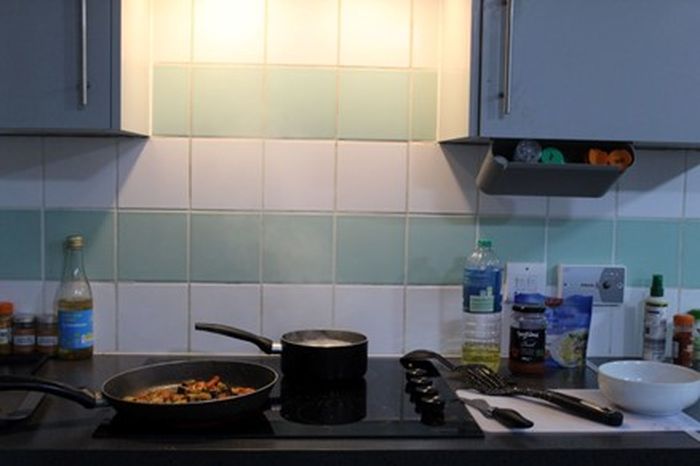Hallelujah! Good Omens makes a miraculous return
Genevieve Badia-Aylin lauds the sophomore season of this fantasy-comedy from writers Neil Gaiman and John Finnemore

A second series of Good Omens might as well have been a miracle upon its announcement. Much like the final seasons of Game of Thrones, the hallowed source material – the 1990 novel of the same name from Neil Gaiman and the late Terry Pratchett – had already run its course, with everything from the Sermon on the Mount to Armageddon having been squeezed into the first season’s six-episode run. The end of the world had been averted, Heaven and Hell had declared amnesty over their holy war, and the Antichrist had grown up and gone to school – what could possibly follow?

As it turns out, much unlike the catastrophic fate of Game of Thrones (Bran the Broken, I still curse you), Good Omens 2 doesn’t so much fall off the rails as saunter vaguely into new territory, with a cup of tea in one hand and a copy of Iain Banks’ The Crow Road in the other (the book is referenced throughout the season, adding a macabre tone to the show’s antics). Gaiman collaborates with award-winning comedy writer John Finnemore (Peterhouse alumnus and creator of BBC Radio 4 shows such as Cabin Pressure and John Finnemore’s Souvenir Program) to devise the script for this new incarnation – the result is an explosion of dark wit and dreamy optimism that, much like protagonists Aziraphale (a dandy-ish Michael Sheen) and Crowley (David Tennant, hissing and gesticulating with spectacular venom), dance around each other in evermore flirtatious contradictions.
“An explosion of dark wit and dreamy optimism”
Good Omens is still very much what it has always set out to be – an exploration of the limits of good and evil, a question mark over the space between Heaven (a blinding, open-plan office space that wouldn’t be out of place in the Shard) and Hell (a Kafkaesque bureaucrat’s lobby, where Nazis shuffle for eternity in the queue for their next document to be stamped). Divinity is totalitarian, and the inferno is, well, infernal – and it is precisely the philosophical conundrum of how to exist between the two that lies at the heart of Good Omens’ gentle soul.
Of course, Pratchett’s absence cannot help but be sorely missed (much of the first season had been lifted directly from the novel). There are comedic moments from the original that are without match – the revelation that the M25 was constructed in the shape of a demonic sigil in order to awaken the apocalypse is a personal favourite touch. The first season’s sense of cohesion, even with its sprawling side-plots, is comparatively lacking in its successor. Indeed, the stakes here are lower, as the charge towards Armageddon is swapped for a desperate plot to hide the Archangel Gabriel (a wonderfully buffoonish Jon Hamm) from the forces of Heaven and Hell after he turns up on Aziraphale’s doorstep: naked, amnesiac, and calling himself “Jim”.
Yet it is the relationship between Aziraphale – a rogue angel with a taste for Shostakovich – and Crowley – once the snake in the Garden of Eden, now a demon living in his car with a litter of quivering houseplants – that is at the series’ core. We follow them through the Book of Genesis and the trials of Job in the Old Testament, to the body-snatching streets of 1800s Edinburgh and the Blitz’s burning West End – all to witness the sentimental glances between them, those fleeting smiles interspersed with cracking remarks and (almost always reconcilable) moments of exasperation. Tennant and Sheen play their parts with dynamism and tenderness, a chemistry that has proved magnetic even outside of the Gaiman-verse (see the BBC Zoom series Staged, where both also co-star).
“The show allows for its queer relationships to be written with deftness, (dark) humour, and, above all, love”
It serves the new series well that the romance between these two “polar opposites” – once fervently black and white, now both in shades of grey – has been positioned rightfully centre-stage, as the show allows for its queer relationships to be written with deftness, (dark) humour, and, above all, love. For those of us accustomed to the queerbaiting of such shows as Sherlock and Supernatural, the endless “kill your gays” trope that involves offing popular characters for shock value, or, indeed, the flat-out erasure of queer characters from our silver screens, Good Omens is a testament to a exciting new mainstream television that refuses to hide its convictions.
Good Omens is currently streaming on Amazon Prime Video
 News / Eight Cambridge researchers awarded €17m in ERC research grants27 December 2025
News / Eight Cambridge researchers awarded €17m in ERC research grants27 December 2025 News / Clare Hall spent over £500k opposing busway 24 December 2025
News / Clare Hall spent over £500k opposing busway 24 December 2025 Comment / League tables do more harm than good26 December 2025
Comment / League tables do more harm than good26 December 2025 Comment / The ‘class’ of Cambridge24 December 2025
Comment / The ‘class’ of Cambridge24 December 2025 News / Caius mourns its tree-mendous loss23 December 2025
News / Caius mourns its tree-mendous loss23 December 2025










